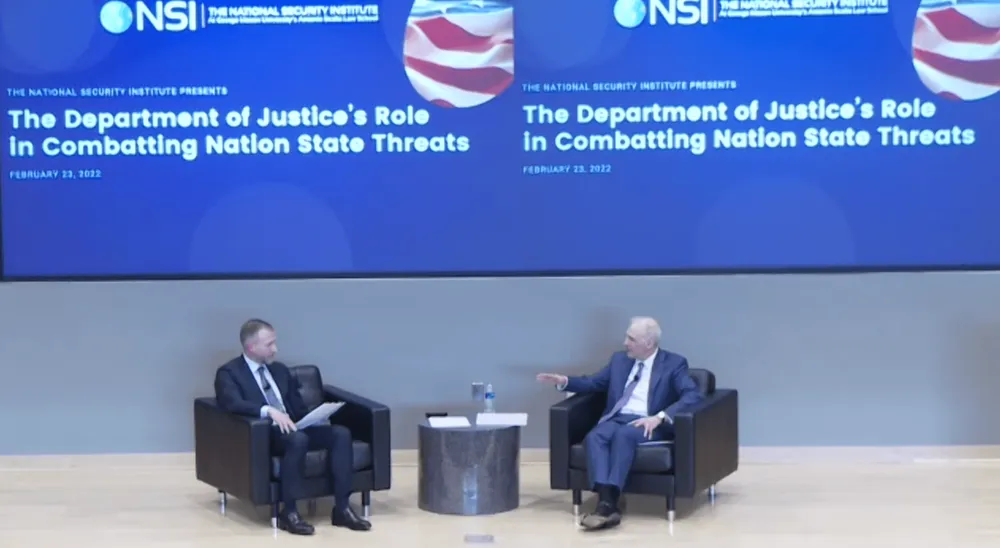DoJ announces new strategy for countering nation-state threats
A top Justice Department official on Wednesday said that the US government was ending a controversial China-focused strategy developed under the Trump administration, replacing it with a broader strategy that focuses on countering cyberattacks, espionage and other threats from a wider range of nation-state adversaries.
Matthew Olsen, Assistant Attorney General for the National Security Division at the Department of Justice, announced the shift at an event held by the National Security Institute at George Mason University, saying that the old program created a perception among academics and others that the department was unfairly targeting ethnic Chinese researchers and professionals.
“To be clear, we are no longer going to have a China Initiative going forward,” said Olsen, who’s previous government roles include leading the National Counterterrorism Center and serving as general counsel for the National Security Agency. “Having listened to the concerns and most importantly having understood the nature of the threat we face today, I think a better, more appropriate and effective strategy is to look at all the threats we face from nation-state actors.”

The new strategy focuses on the so-called “Big Four” actors — Russia, China, North Korea, and Iran. Olsen said these countries have become more aggressive, especially in the cyber domain, and deploy a growing range of tactics to advance their interests and harm the US. He specifically cited a China cyber campaign targeting Microsoft Exchange servers, the Russia-linked SolarWinds compromise, and North Korean attacks on cryptocurrency exchanges and banks.
“Our role at the Department of Justice is to identify and disrupt cyber threats… and hold these individuals accountable,” said Olsen, adding that the department would continue to make prosecuting hackers a priority.
The strategy, however, is not limited to cyber threats — it includes blocking efforts from authoritarian regimes to interfere in free speech, evade sanctions, and steal intelligence and trade secrets. Additionally, although the China Initiative is shuttered, Olsen added that the Chinese government remains a particular concern in the new strategy.
“There’s no one threat that is unique to a single adversary. At the same time it is also clear to me that the government of China stands apart,” he said, adding that the threats from Beijing are increasingly “brazen and damaging.”
The announcement also came at a critical point in the evolving conflict between Russia and Ukraine, especially as cybersecurity experts and officials warn of digital attacks that could potentially spiral out of control. Olsen emphasized that there would be consequences if Russia targeted US organizations.
“The president has raised the concern around the possibility of cyberattacks. That’s an area of focus for us and others,” Olsen said. “The US government has made it clear that if Russia launches any sort of disruptive cyberattack against companies or critical infrastructure, we’re going to respond.”
Adam Janofsky
is the founding editor-in-chief of The Record from Recorded Future News. He previously was the cybersecurity and privacy reporter for Protocol, and prior to that covered cybersecurity, AI, and other emerging technology for The Wall Street Journal.



